- 22 Development Management core & elective courses and 10 workshops
- The only institute to use ‘bricoleuring’ in its pedagogy
- A foundation-building orientation-cum-induction term
- Access to the world’s best journals and other digital resources
- Plenaries, Hot Conversations and CEO Talks
- Personal Mastery for Development Leadership
- 2-week immersive field component called Realising India
- Unique Context-Based Collaborative Learning (CBCL) pedagogy
- 12 Harvard ManageMentor Courses covering Management topics
- Live Interactions with Eminent Speakers
- Specially curated Workshops
- Development Management Writing Centre along with the course ‘Writing in the Discipline’
- Mix of Courses in Development Management
- Special Capstone Project on Scale and Sustainability
The immersion bridges academic learning with lived realities. It provokes reflection, challenges preconceived notions, and fosters empathy, qualities essential for anyone aspiring to lead transformative change in the development sector.
By the end of the journey, students often return with a renewed sense of purpose, a deeper understanding of systemic injustice, and a stronger commitment to building a society grounded in fairness, dignity, and collaboration.
Step 2 - Online Assessment
Step 3 - Personal Interview
Step 4 - Offer Roll Out
Registration & Application
a. Basic Analytical Test
This dynamic, adaptive and MCQ-based test assesses a candidate’s fundamental analytical capabilities, encompassing basic numerical ability, attention to detail, data interpretation skills, verbal reasoning, and spatial reasoning proficiency. This test comprises 25 questions, with a time-limit of 10 minutes.
b. SVAR - Spoken English Test
This adaptive audio-based (listening/speaking) test evaluates a candidate's proficiency in spoken English across areas including pronunciation, fluency, active listening, comprehension of spoken English, vocabulary, grammar, and articulation. This test comprises 38 questions across 6 sections, with a time-limit of 15 minutes.
The total duration of the Assessment comes to approx. 25 minutes. Together, these two components comprehensively gauge the candidate's linguistic and analytical competencies, ensuring a thorough preliminary evaluation of their readiness for the PGP-DM program at ISDM.
The fee structure at ISDM is as follows:
- An Enrolment-cum-Caution Deposit of INR 25,000 (twenty-five thousand) needs to be deposited to confirm your seat in the program. Caution Deposit is refundable after completion of the program.
- The Tuition Fee for the entire program is INR 7,50,000 (seven lakh and fifty thousand), payable in two equal installments. This fee does not include any living/accommodation costs.
- The first instalment of the Tuition Fee is to be paid in July, before the commencement of the program.
- The second instalment of the Tuition Fee is to be paid in January, roughly 6 months after the first instalment.
Click here to know more about Financial Assistance options available.
If a candidate withdraws their enrolment before the commencement of the program, the Enrolment-cum-Caution Deposit refund may (or may not) be refunded based on the nature of Scholarship availed:
Full Scholarship: No refund
Partial/No Scholarship: Partial refund after deduction of processing charges
ISDM offers two types of scholarships for its 11-month PGP-DM program: Merit-based and Need-based. The process for each is outlined below.
1. Merit-based Scholarships
Merit-based Scholarships are awarded at the sole discretion of ISDM’s Financial Assistance Committee, based on a candidate’s scholastic scores. You do not need to apply separately for this scholarship, as eligibility for merit is assessed based on scholastic scores already submitted as part of the general application process.
2. Need-based Scholarship
If you wish to be considered for Need-based Financial Assistance, you can indicate this in the dedicated Need-based Scholarship Consideration section of the Application Form. This section outlines the eligibility criteria, income calculations, and instructions for submission.
After the Personal Interview (PI), candidates who have opted for Need-based Scholarships will receive a prompt to complete and submit a detailed Need-based Scholarship Application along with the necessary supporting documents. This must be submitted within the given timeline, typically within 10 days of application submission or 4 days after the PI.
All scholarship applications are reviewed by the Financial Assistance Committee, and decisions are released along with the Offer of Admission to selected candidates.
In summary, while Merit-based Scholarships are automatic, Need-based Scholarships require a short, structured application process after your interview.
ISDM has earned recognition as a preferred destination for recruiters in the development sector. Over 400+ ISDM alumni are currently working with leading organisations across diverse areas such as education, healthcare, water and sanitation, women’s empowerment, child development, livelihoods, and skill development.
The placement process at ISDM is designed to align students’ interests with organisational needs, ensuring meaningful roles that create social impact.
Here’s a broad overview of how placements unfold at ISDM:
- Expression of Interest: Partner organisations share their intent to recruit from ISDM.
- Pre-Placement Talks (if applicable): Organisations introduce their work, culture, and available roles to students.
- Job Descriptions Shared: Partner organisations submit detailed JDs outlining roles, responsibilities, and requirements.
- Student Applications: Students apply to roles that match their interests by submitting resumes and cover letters.
- Selection Process: Organisations conduct their recruitment process, which may include interviews, assignments, aptitude tests, or case studies, depending on the role.
- Final Offers: Selected candidates receive offers and begin their professional journey in the sector.
ISDM’s placement committee actively engages with a diverse range of organisations across the development ecosystem — from grassroots implementation agencies to consulting firms and corporate foundations. The goal is to offer students opportunities that align with their interests and the wide scope of development management.
Broadly, ISDM targets the following categories of recruitment partners:
- Domestic Implementation Organisations
Examples: PRADAN, Piramal Foundation
These organisations work directly at the grassroots level, implementing large-scale social programs in partnership with communities and governments. - International Implementation Organisations
Examples: PLAN India, Room to Read
These are globally affiliated organisations that implement development programs across education, health, and livelihoods in India. - Consulting Organisations
Examples: Thinkthrough Consulting, Samhita
They provide advisory and strategy support to foundations, NGOs, and CSR arms, helping design and evaluate social impact programs. - Enabling Organisations
Examples: EdelGive Foundation, Social Venture Partners (SVP)
These organisations strengthen the development ecosystem through funding, capacity building, and network support. - Social Enterprises
Examples: VisionSpring, Karo Sambhav
Mission-driven businesses that apply market-based solutions to social and environmental challenges. - CSR Wings and Corporate Foundations
Examples: Reliance Foundation, JSW Foundation
These entities focus on delivering social impact programs funded by corporations, blending business principles with community development.
ISDM does not offer an MBA; the program is a Post Graduate Program in Development Management (PGP-DM), a certificate course focused on preparing students for leadership in the development sector.
Over the last 8 batches, the program has seen strong placement outcomes:
- Overall average salary: ₹6.2–7.0 LPA
- Highest salary: ₹16 LPA
- Placement rate: ISDM has consistently achieved 100% placements, except for the Class of 2020, which was impacted by the COVID-19 pandemic.
The placements reflect the program’s focus on meaningful roles across development organisations, social enterprises, CSR wings, consulting, and other mission-driven organisations.
Graduates of the Post Graduate Program in Development Management (PGP-DM) can pursue a wide variety of roles across the development sector, social enterprises, CSR, and allied areas. Some of the key functions include:
- Program Operations & Management – Leading and managing development projects on the ground.
- Fundraising – Engaging with retail donors, corporate partners, and high-net-worth individuals (HNIs).
- Communications & Engagement – Crafting outreach strategies, storytelling, and stakeholder engagement.
- Strategy & Data-Based Decision Making – Using insights and analytics to drive organizational impact.
- Corporate Social Responsibility (CSR) – Designing and implementing CSR initiatives within corporates.
- Strategic Partnerships & Alliances – Building collaborations with NGOs, governments, and corporates.
- Government Relations & Advocacy – Influencing policy and engaging with public institutions.
- Monitoring & Evaluation – Measuring program effectiveness and impact.
- EA to the CEO or Founder’s Office – Supporting leadership in decision-making and operations.
Some graduates also choose the path of entrepreneurship, founding their own organisations or social enterprises to directly address pressing social challenges.
Note: Scholarships offered by ISDM do not cover accommodation or living expenses.

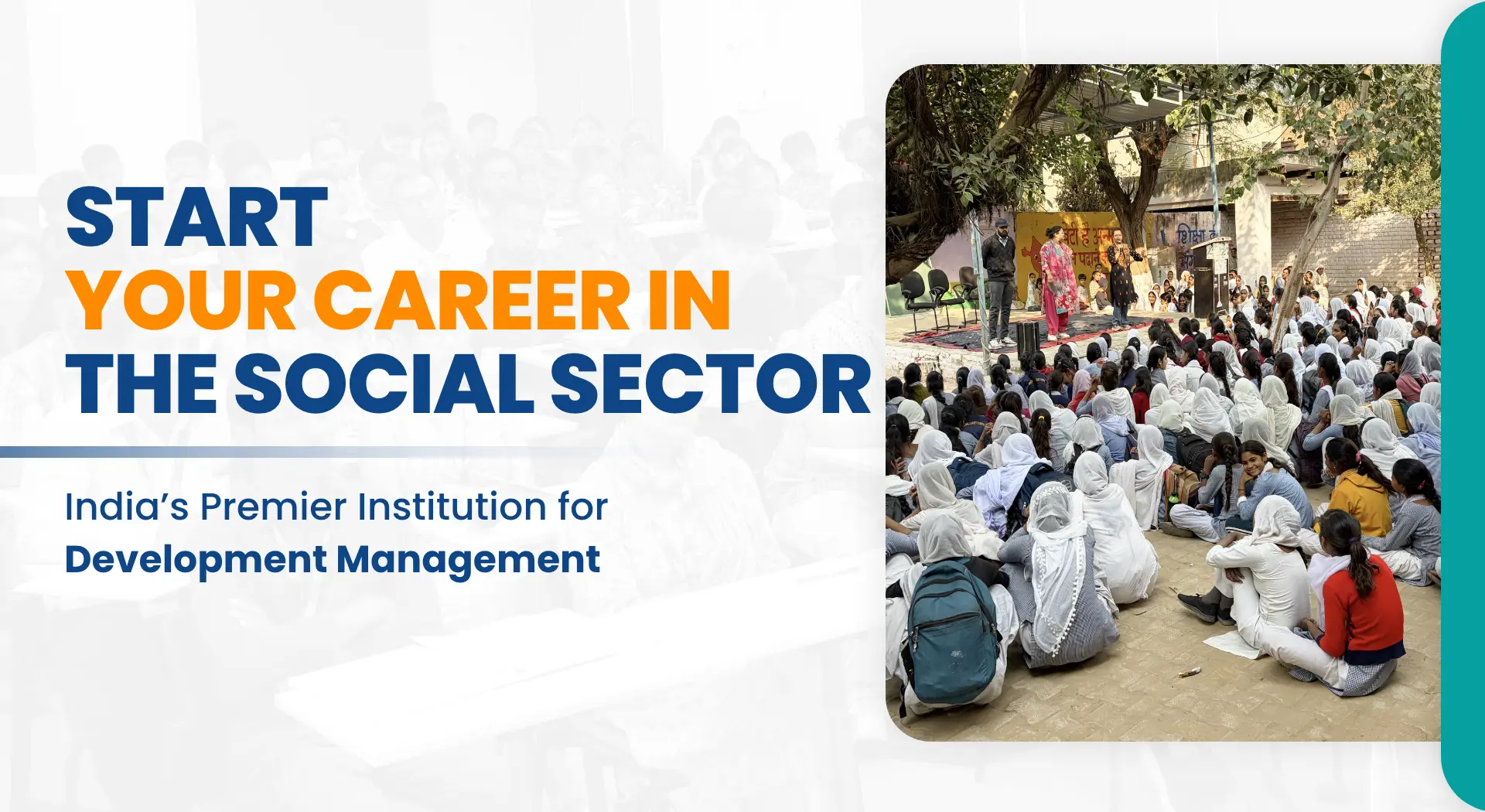
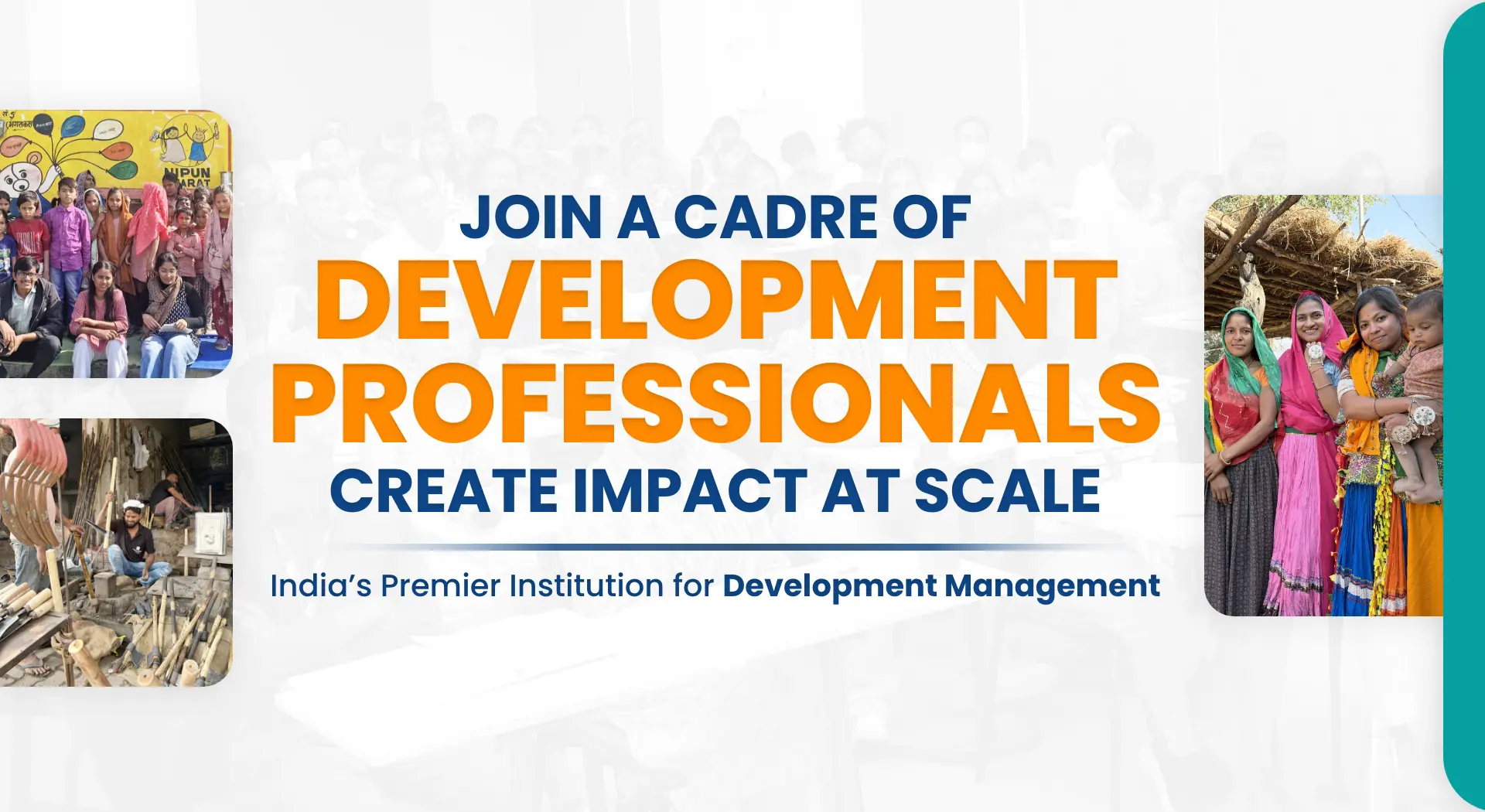
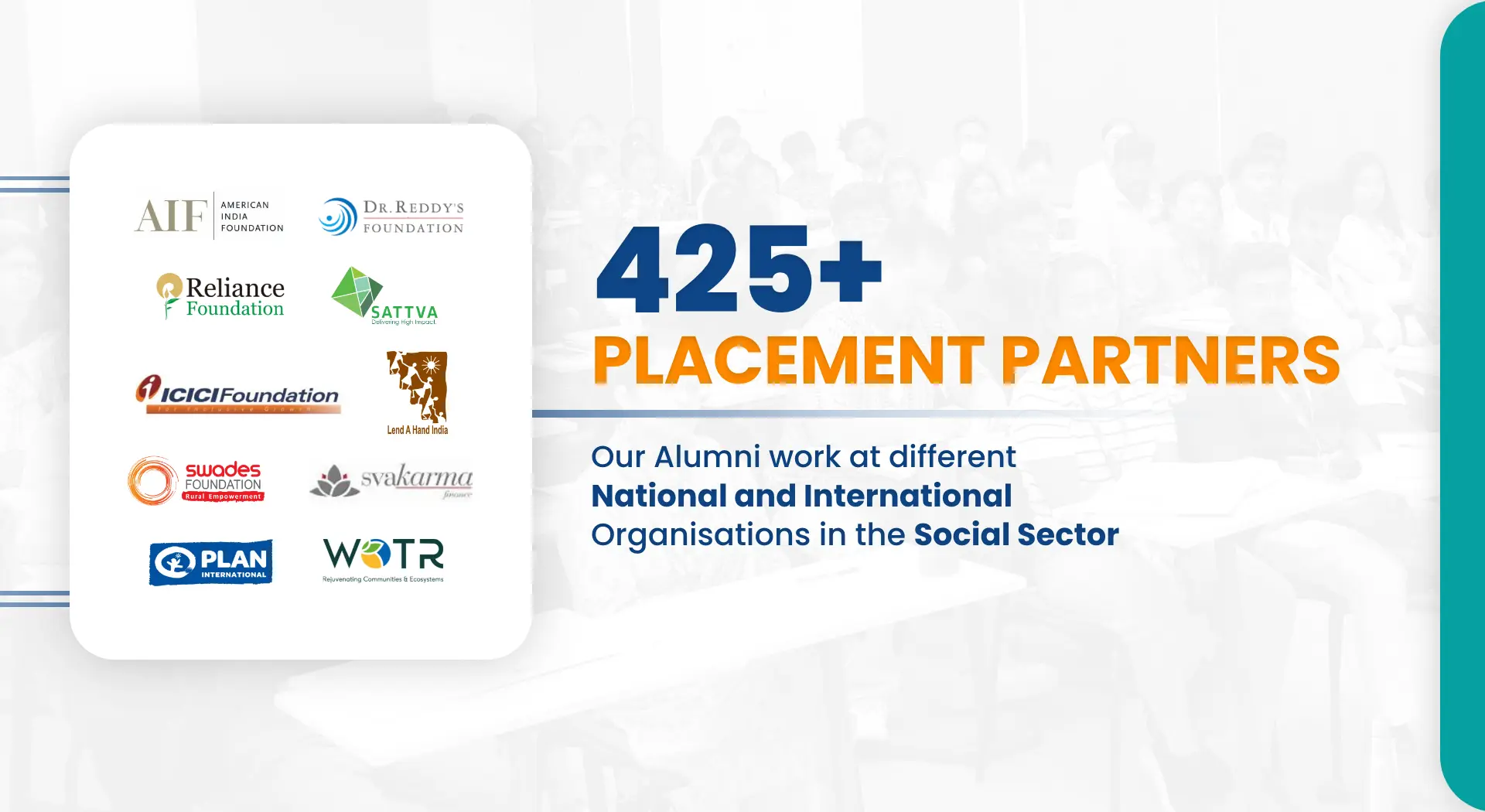
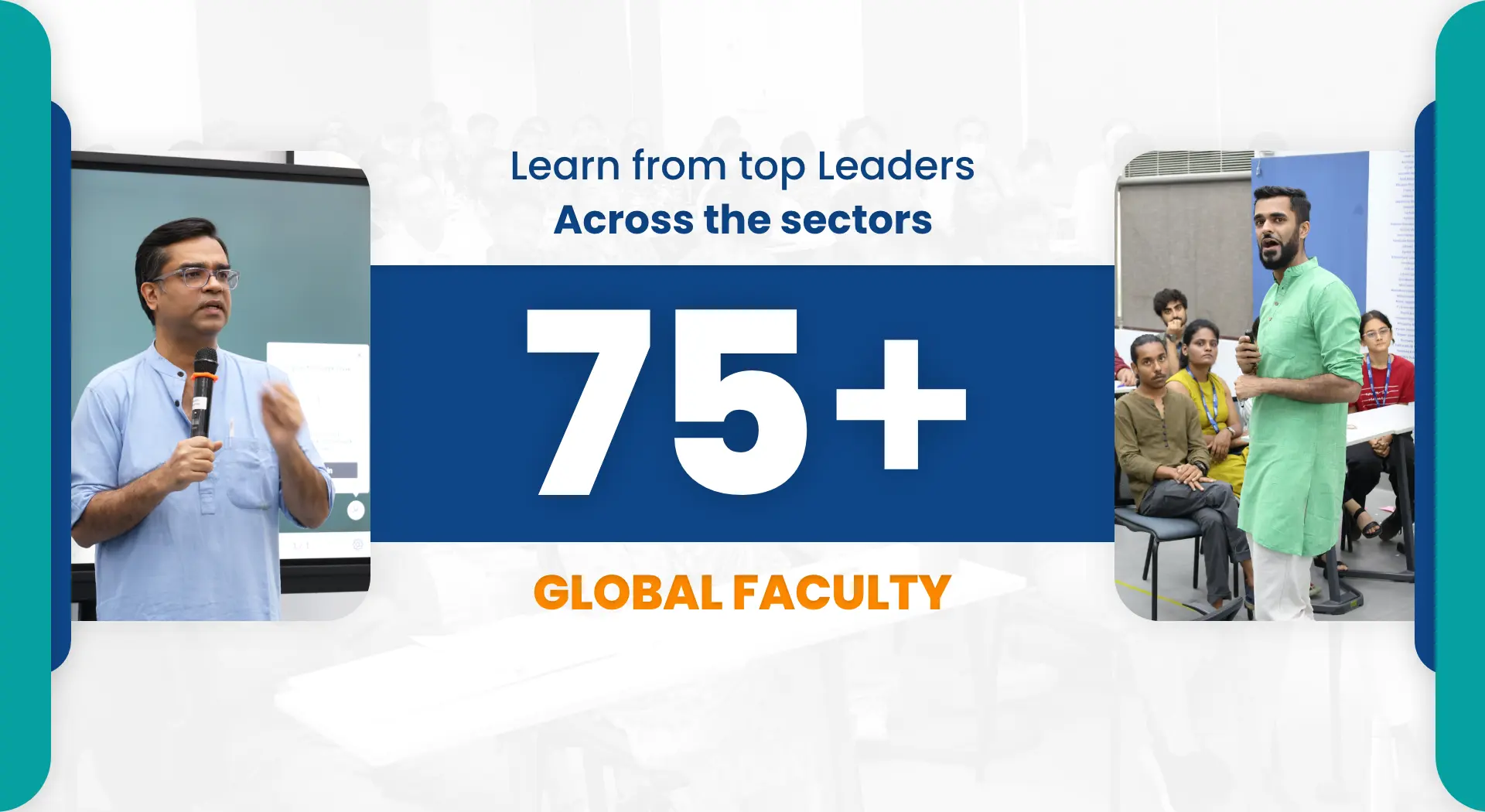
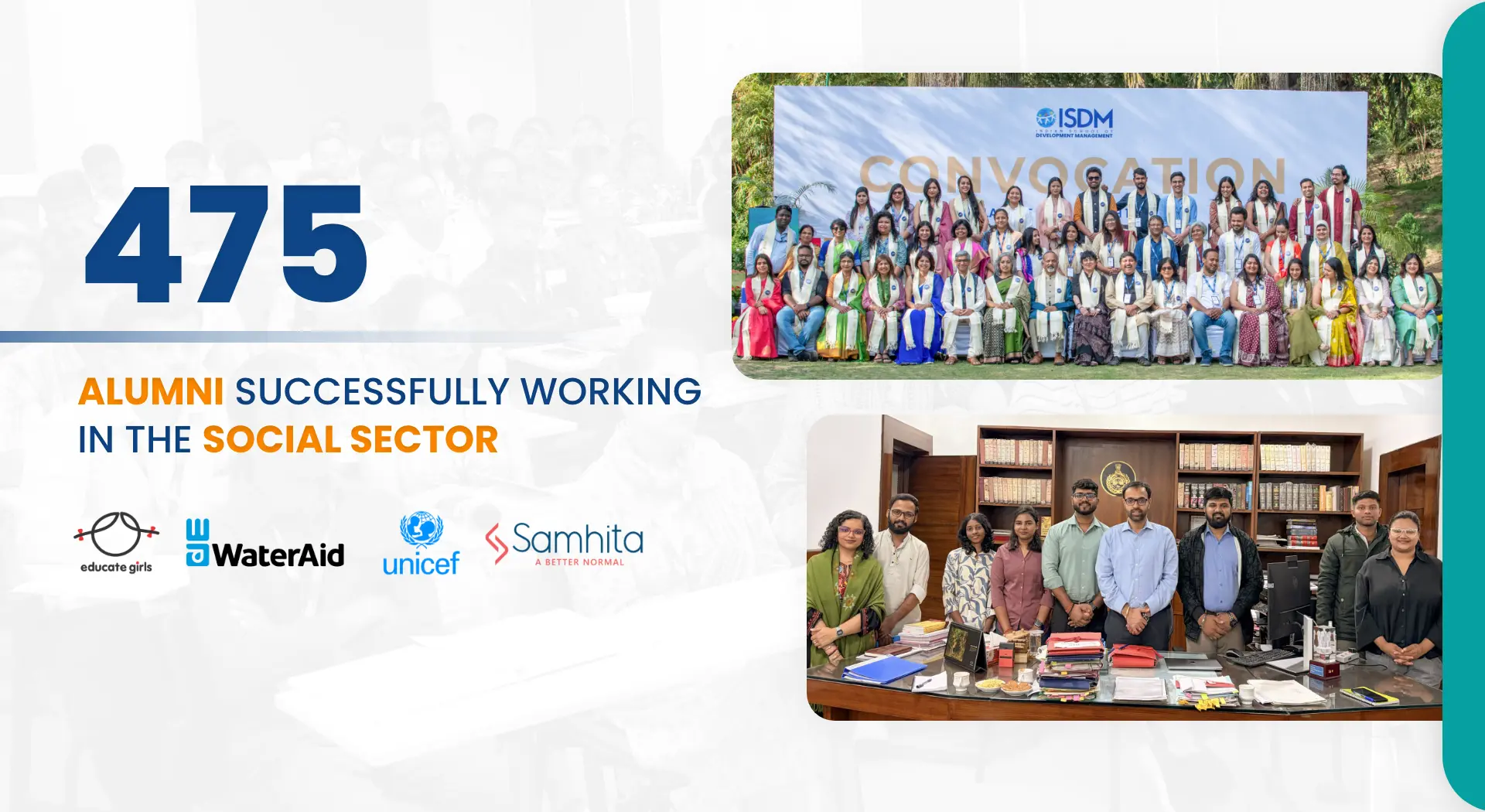
 In any social issues that we face in society, the more trained you are in management and development, the better you are equipped to tackle the issues. ISDM is an institute which conducts training to teach young minds with the right skills.
In any social issues that we face in society, the more trained you are in management and development, the better you are equipped to tackle the issues. ISDM is an institute which conducts training to teach young minds with the right skills.



































































